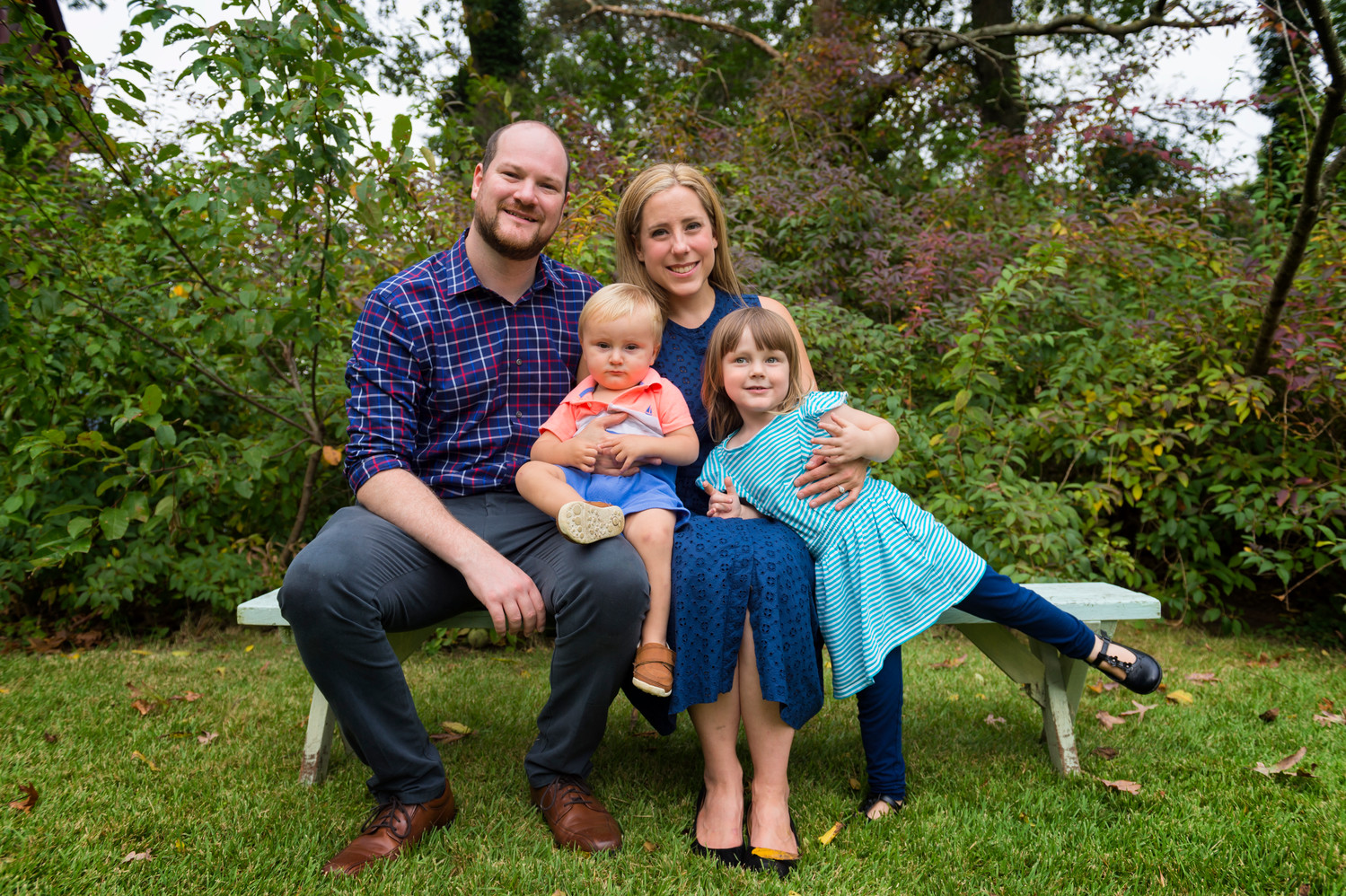Liuba Grechen Shirley is running for Congress on Long Island and is the first female candidate to have secured Federal Election Commission funding for childcare. She talked exclusively to Thrive Global about why this is so important, and what it means for future female candidates seeking greater work-life integration.
Thrive Global: Why was it so important for you to secure FEC childcare funds?
Liuba Grechen Shirley: “I wouldn’t have been able to run without them. My children were the biggest factor in my decision. My kids are four and two. That was the holdup in deciding to jump in and run. They were the reason I decided to run. I launched in October, got campaign staff in January, and didn’t have a babysitter. I had to raise $100,000 on my own from friends and family. I have a background in nonprofits. I would be nursing, and my daughter would do my hair, and I’d make calls. I raised $126,000 in two months, and I brought on campaign staff. If I were to continue, hours would get longer, and I would need help. My mom is a public school teacher and she helps with the kids in the afternoons, my husband does weekends and evenings, but we need help. We hired a part-time babysitter, she started in March, and that made me able to continue the campaign. Two men have put in requests with the FEC for childcare help in the past, one representative in the nineties wanted to bring his wife on campaign trips, so he asked to use campaign funds to pay for a babysitter and it was approved, but they didn’t have enough commissioners so there wasn’t a quorum, and so it wasn’t an official ruling. That happened once more, with the second candidate to ask. I’m the first female candidate to do this and get an official ruling, and it was a unanimous vote. There was precedent, but I was nervous they might not approve it. It was really necessary, and a critical first step to breaking down barriers. Congress is 19 percent female, and the average age is 52. Most people wait until their kids are grown to run for Congress, so we’re missing that voice, the voice of people who know what it’s like not to have paid family leave. I was one of 88 percent of women in this country who didn’t have paid family leave. We need people in Congress who get what it’s like to worry about affording childcare. In more than half of the states, it’s more expensive to send a child to daycare than to a public four year college. In New York City, childcare can cost $1900 and up. Women often choose to stay home because it makes economic sense. Women earn less than men, then we often take time out for children, because we don’t have paid family leave, and women wind up making hundreds of thousands of dollars less. Elderly women are much more likely to live in poverty than men. One in four women will go back to work 10 days after giving birth. It’s a human rights crisis. That’s the voice we’re missing in Congress. We need people to fight for affordable childcare, universal healthcare, and universal pre-kindergarten.”
TG: How did you feel when you heard the announcement that you had won the funding?
LGS: “It was incredible. I went down to D.C. to testify in front of the Federal Election Commission. I was prepared for a lot of questions. I thought there would be a long discussion. I brought my kids with me, so they let me go first. The Chairwoman is a Republican and she gave a great speech about why this was so important and she thanked me for bringing this topic up, and it was inspiring to see this support. Then, after it received a unanimous approval, my husband took us to the Air and Space Museum. Even CNN and Fox News agreed with me. I couldn’t have imagined that I would hear Fox News agree with me! Hillary Clinton wrote a three-page letter in support. To have her support was inspiring. 24 Representatives wrote in support as well, including Maxine Waters and John Lewis. Over the last couple of weeks, so many State Legislature people are putting in similar requests at the state level. This will change precedent for future candidates running in 2020.”
TG: What does this imply for future candidates? For women in the workforce?LGS: “Women do the majority of unpaid care work. We have so few women running for office because women are working full time, and they’re bearing the brunt of child-rearing. Fathers take part, but most of the unpaid work will still fall to the women. Getting the Federal Election Commission to provide funding for childcare will get more women into office, and break down barriers so more women from all walks of life can decide to run for office. More than half of those in office are millionaires, and they don’t understand how their policies affect us. We do because we’re living those lives every day. We’re finally seeing women run for office. There are still only four of us running with children who are four or younger. We need more parents of young children running.”


